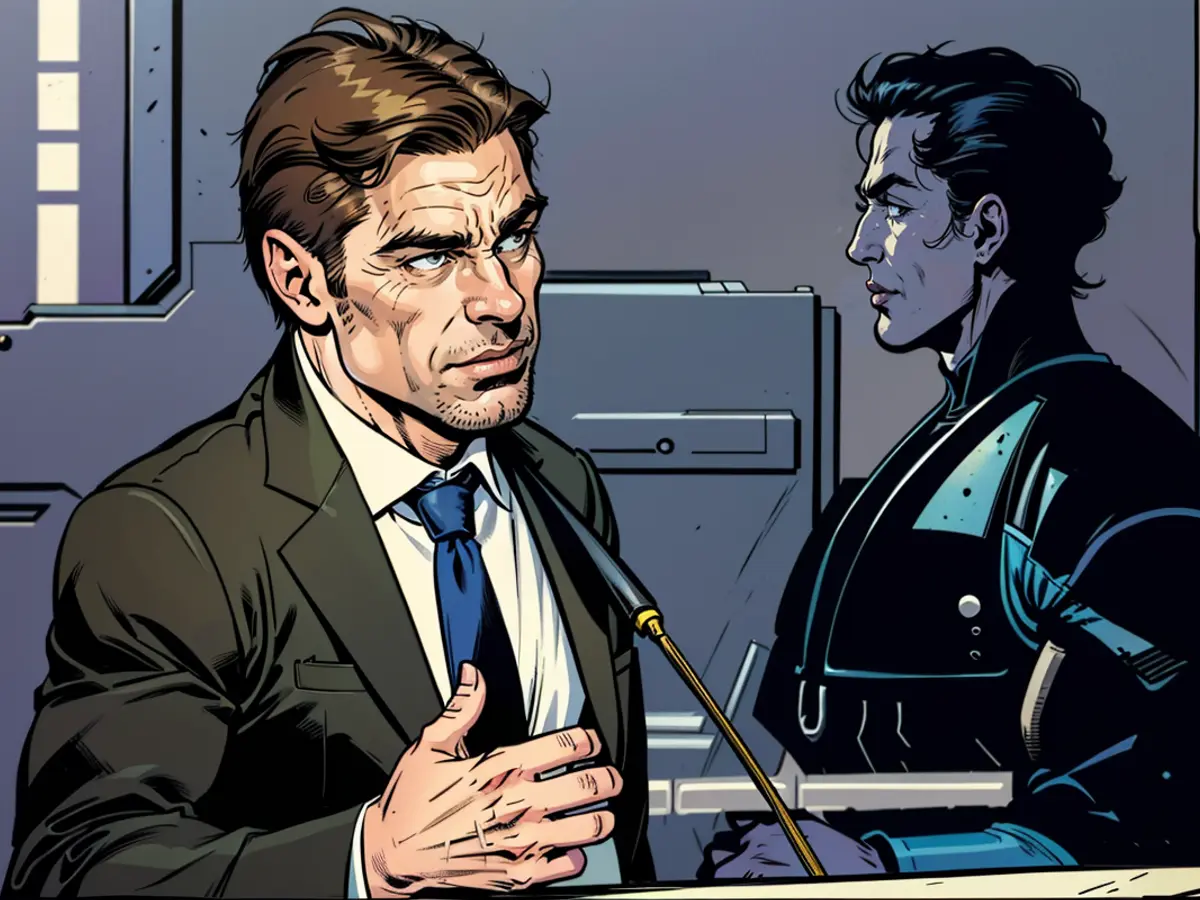Escalating Trade Conflict: EU and China Clash Over Taxes on Electric Vehicles
EU Trade Commissioner Valdis Dombrovskis had a productive chat with Chinese Trade Minister Wang Wentao on the weekend, as per Commission spokesperson Olof Gill in Brussels. The Chinese Ministry of Commerce confirmed that both parties had agreed to discuss things further.
Habeck welcomed this progress during the ARD "Tagesthemen." The EU and China have set a plan for preliminary negotiations. "We're not quite there yet, but at least we're having conversations," Habeck said in Shanghai on Saturday.
Recently, the EU Commission decided to increase tariffs on electric cars from China, which might come into effect from early July. The Commission believes that battery-electric vehicles in China receive "unfair subsidies," which could cause EU manufacturers "financial harm," according to Brussels. China views these plans as purely protectionist.
During his trip to Beijing and Shanghai, Habeck aimed to ease the tension and advocated for comprehending each other's viewpoints. "Perhaps today's talk got a boost from the day itself," Habeck said in Shanghai on Saturday. "It would be great if mutual understanding had progressed a bit."
Given the cachet of the Chinese market for the German automotive sector, the German government has objected to the Commission's tariff plans and secured a reprieve until their implementation, which ends in early July.
"It's crucial to grasp that this isn't about penalties," Olaf Scholz stated during his meeting with the chair of the National Reform and Development Commission (NDRC), Zheng Shanjie, in Shanghai. While there are penalties, Scholz pointed out, looking at the US and Turkey, who impose tariffs on Chinese vehicles across the board. "Europe takes a different approach, and there's a considerable difference," Scholz continued. "This isn't about a penalty."
In an ARD interview, Habeck stressed that he journeyed to China as the German Economics Minister to "absorb the German perspective in a European manner." He worked closely with the Commission. Germany alone cannot make a difference. "If we don't act as Europeans, then the other economic powers will pick us apart eventually," Habeck said. "It's all about whether the open trading world crumbles into numerous regional protectionist, fortified zones."
Habeck traveled from South Korea to China on Friday during his East Asian trip. In Beijing, he met with Chinese government representatives. A scheduled meeting with Chinese Premier Li Qiang, however, was called off.
The EU voiced criticism regarding the timing of the trip, stating that it's "not smart" that this is Habeck's first China visit during his tenure as Economics Minister, EU economic policy spokesperson Julia Klöckner told the "Rheinische Post" (Monday edition). "He should have done this earlier and more frequently to be taken seriously," the CDU politician explained. The fact that Chinese Premier Li canceled the planned meeting with Habeck "says a lot about the importance of the German Economics Minister in China."
China is often criticized by western trading partners for alleged unfair trading practices. There are fears that excessive state subsidies in Chinese monopolistic sectors such as the automobile industry, renewable energies, or battery production could lead to overproduction, flooding the European and global markets with cheap products, harming competitors. According to the Federal Statistical Office, the proportion of China in the import of electric vehicles to Germany has been steadily increasing in recent years.
Read also:
- Valdis Dombrovskis, the EU Trade Commissioner, discussed the electric vehicle taxes issue with China's Trade Minister Wang Wentao over the weekend.
- Robert Habeck, the German Economics Minister, praised the progress in negotiations between the EU and China during an ARD "Tagesthemen" appearance.
- The EU Commission imposed higher tariffs on electric cars from China, potentially starting in early July, citing unfair subsidies impacting EU manufacturers.
- China views the EU's tariff plans as protectionist, and Habeck aimed to ease tension while advocating for understanding during his Beijing and Shanghai visit.
- Germany objected to the tariff plans, securing a delay until implementation in early July, due to the importance of the Chinese market for their automotive sector.
- Olaf Scholz emphasized that the EU's approach differs from protectionist measures like tariffs on Chinese vehicles used in the US and Turkey.
- Habeck emphasized the importance of understanding the German perspective as part of the EU during his trip to China for negotiations on customs duties related to electric cars.
- Habeck met with Chinese government representatives during his trip, but the planned meeting with Premier Li Qiang was cancelled, drawing criticism from EU economic policy spokesperson Julia Klöckner.
- The increase in China's share of electric vehicle imports to Germany has increased over the years, leading to concerns about excessive state subsidies in Chinese monopolistic sectors like automobile manufacturing.







